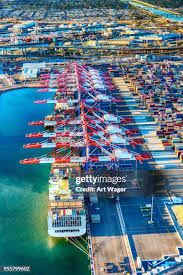In maritime transport, delays caused by port congestion are a routine risk. But do they amount to a breach of the “safe port” warranty in a charterparty?
The English case The Future Express [1992] 2 Lloyd’s Rep. 79 remains a leading authority on this question, offering clarity for shipowners, charterers, and maritime legal practitioners.

⚓ Background: The Dispute
In The Future Express, a vessel experienced significant delay due to severe congestion at the nominated port. The shipowners claimed the port was not “safe” within the meaning of the charterparty, alleging a breach of the charterer’s safe port warranty and seeking damages for lost time.
The key question was:
❓ Does congestion alone—without any physical or navigational danger—render a port unsafe?
🧑⚖️ The Court’s Decision
The court ruled against the shipowners, holding that congestion does not, in itself, make a port unsafe.
Key findings:
Definition of a Safe Port – The warranty relates to physical safety: a port is safe if a ship can enter, remain, and depart without being exposed to abnormal risk.
Congestion ≠ Unsafety – Delays, however severe, are not a breach unless they create actual or foreseeable physical danger to the vessel.
Commercial Inefficiency Is Not Enough – Safe port obligations address maritime hazards, not operational bottlenecks.
🌍 Why This Matters
Today’s global trade environment often funnels vast volumes of cargo through a few key ports. Congestion—whether due to high traffic, strikes, weather disruptions, pandemics, or geopolitical events—is common.
This case establishes that:
✔️ Routine congestion is a commercial risk for which charterers are not liable under safe port clauses.
✔️ Shipowners must assess physical risk, not just lost time.
✔️ Concerns over delay should be addressed in laytime/demurrage clauses or specific congestion provisions—not by invoking safe port warranties.
📌 Contract Drafting Lessons
From The Future Express, three practical takeaways stand out:
1️⃣ Understand the Real Scope of Safe Port Warranties
These clauses are about safety, not speed. They protect against navigational or physical hazards, not inefficiency.

2️⃣ Address Congestion in the Right Clauses
If delay is a concern, include clear terms on:
Laytime and demurrage
Force majeure
Port rotation flexibility
Congestion exceptions or rider clauses
3️⃣ Balance Legal Clarity with Commercial Reality
This case underscores the need for precise drafting and realistic expectations in charter negotiations.
📝 Final Thoughts
The Future Express remains a cornerstone in interpreting safe port obligations. Its lesson is simple yet critical: safe port warranties cover safety, not punctuality. For effective risk management, parties must distinguish between legal duties and commercial planning—and draft contracts accordingly.